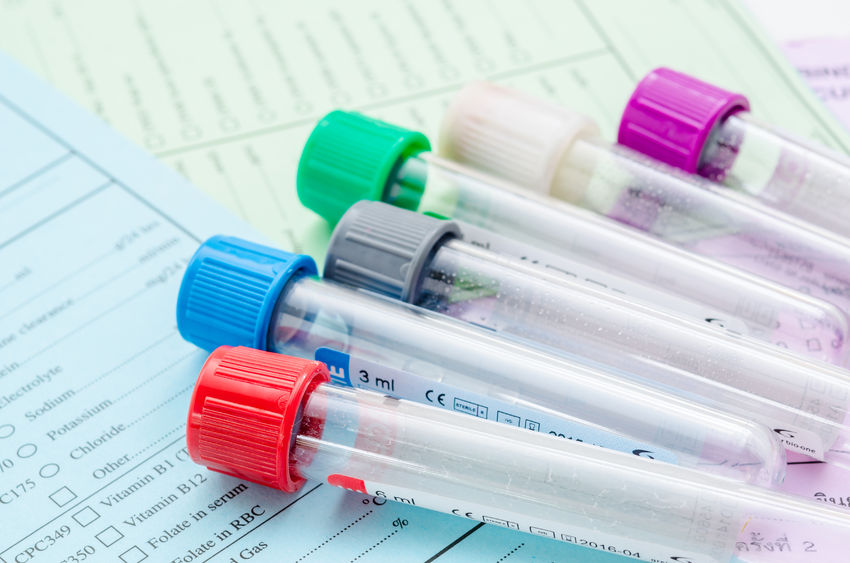
Cotinine Test
Also known as Cotinine BloodWhat is this test?
The cotinine blood test is used to detect the presence or absence of cotinine and also to measure the levels of cotinine in your blood.
What is Cotinine?
Cotinine is a metabolite of nicotine in the body. This test helps in knowing if a person is on nicotine-containing products or not. This test helps in evaluating acute nicotine poisoning.
Nicotine is metabolized in the liver. The liver breaks down nicotine into cotinine. Cotinine is a type of chemical your body produces after getting exposed to nicotine. Usually, cotinine test is preferred to nicotine test because nicotine disappears from the system rapidly within a few hours, but cotinine lasts more than a day or more. Cotinine has a half-life of 7 to 40 hours whereas nicotine’s half-life is 1-4 hours. Nicotine is a chemical derived from plants like tobacco. Nicotine is found especially in the leaves of this plant. Nicotine is a stimulating as well as a sedating agent. It is known for its euphoric effects. But it also has many pharmacologic actions like, when your body gets exposed to nicotine, adrenal gland gets stimulated and releases adrenaline. The adrenaline stimulates the body and release glucose and also increases the blood pressure, breathing activity and heart rate. It also leads to less insulin production by pancreas thus affecting blood glucose or blood sugar levels in the body. In a way, nicotine leads to release of dopamine in the motivation and pleasure areas of the brain. Thus the user experiences pleasurable sensation. Increase in the exposure of nicotine causes an increase in the oxygen consumption rate by heart muscle, rapid heart rate which may lead to heart attack. Tobacco, when chewed or snorted, releases more nicotine than smoking.
Long-term usage of tobacco products may lead to conditions like oral cancer (cheeks, gums, lips), lung cancer, chronic obstructive pulmonary disorder (COPD), respiratory problems, heart diseases, stroke, and smoking worsens asthma condition. Smoking during pregnancy may lead to impaired growth of the fetus or low birth weight.
Nicotine metabolites can be accumulated in case of passive exposure to tobacco smoke. 20 ng/ml of urine cotinine has been observed in passive exposure.
Why this test is performed?
This test is usually performed to confirm the usage of tobacco or nicotine or secondhand smoke. This test is also done in case of nicotine overdose. Sometimes this test may be recommended to an individual who applies for a new job, mostly in federal, state and some private agencies are asked to undergo this test, to make sure if you are trustworthy of some important information and the overall health and safety. During child custody purposes also this test may be preferred. If you experience nicotine overdose symptoms like drooling, dizziness, weakness, nausea, vomiting and serious symptoms of nicotine poisoning such as excitement, difficulty in breathing, abdominal cramps, restlessness, confusion, seizures, muscular twitching, fainting, coma, etc this test is recommended.
Precautions:
Some pesticides contain very high concentrations of nicotine. This can be the main source of nicotine poisoning. Nicotine itself is a pesticide used as an alternative to pyrethrinoid and organophosphate derivatives. Hence inform your doctor or technician about all your current medications and medical conditions prior to the test.
Also known as Cotinine.
Test Preparation
Inform your doctor if you are on any medications, have any allergies or underlying medical conditions before your Cotinine Test. Your doctor will give specific instructions depending on your condition on how to prepare for Cotinine Test.
No specific preparation is required for the cotinine blood test.
Understanding your test results
The normal test results may vary with many factors such as the amount of nicotine inhaled or ingested, the nicotine metabolizing rate and the clearance of cotinine. These factors are different in each person and hence the normal test values vary.
If your test results are higher than the normal range, it may indicate active use of nicotine or tobacco products. If your tests results are moderately high it may indicate that nicotine or tobacco products have not been used for 2 or 3 weeks. If your test results are too high it may be due to nicotine poisoning.
If your test results are lower than the normal range it may indicate that the individual is a non-nicotine or non-tobacco user but exposed to environmental smoke. If your test results are very low then it may indicate that the individual is never exposed to nicotine or tobacco or even to the environmental smoke.
| Gender | Age groups | Value |
| UNISEX | All age groups | < 2ng/ml |

